The Story of the Unlawful Internet Gambling Enforcement Act
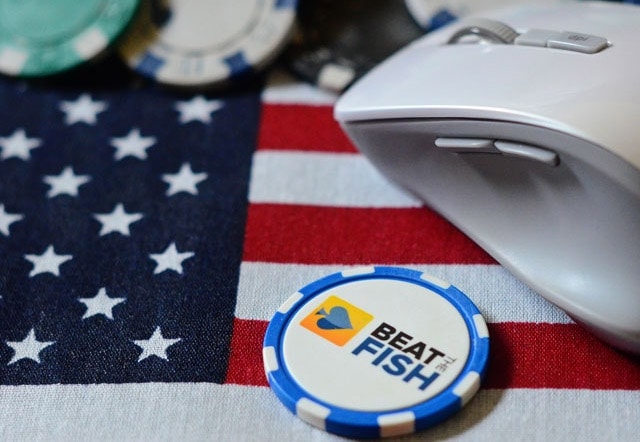
- In 2002, it was determined that the Federal Wire Act doesn’t restrict online gambling
- The UIGEA – The Unlawful Internet Gambling and Enforcement Act was passed in November 2006
- The UIGEA was added to the SAFE Port Act at the last minute
- The Act is only related to financial transactions and does not make it a crime to play any game
- Every publicly-traded online poker site voluntarily withdrew from the US market
- For the next five years the UIGEA was not enforced in practice
- On April 13, 2011, the DoJ unsealed indictments against major online poker operators
- In many aspects, the UIGEA created a situation of modern-day prohibition
The infamous UIGEA, or in its longer version Unlawful Internet Gambling and Enforcement Act, was passed in 2006 as an addendum to the SAFE Port Act.
The Act was intended to regulate online gambling, prohibiting any business entity which offers gambling services from knowingly accepting payments from customer wanting to use the Internet to place a bet or wager.
But what prompted the UIGEA, how was it was passed so easily, and what ramifications does it actually have?
Most poker websites get this issue very very wrong, erroneously saying the Act is an “online poker ban” or “makes online poker illegal”.
Let’s dive into it, cut through the misinformation, and get you the facts you actually need to know about the UIGEA.
Table of Contents
- History of online gambling legislation
- What does UIGEA stand for?
- How did the UIGEA become a law?
- Are you for real?
- Every publicly-traded online gaming company withdraws from the US market
- What carve-outs were given by the UIGEA
- The UIGEA and Black Friday
- State gaming regulations after the UIGEA
- The UIGEA could be considered modern-day prohibition?
- Closing the door on the UIGEA
History of online gambling legislation
In November 2002, it was established that, according to the Federal Wire Act, using telecommunication lines to place sports bets was prohibited. However, it was also ruled by the US Court of Appeals that the Wire Act doesn’t put any restrictions on using the internet to participate in games of chance wagering real money.
Those looking to prevent Internet gambling were thus left high and dry. They tried to push their requests forward using the Wire Act, but it was made clear that the act, as it was, simply lacked the language to address internet gambling. So they needed to do come up with an idea and as quickly as possible.
What does UIGEA stand for?
Most people connected to poker in one way or another have come to understand the acronym which stands for the Unlawful Internet Gambling and Enforcement Act. But what does UIGEA really mean?
“Enforcement” Acts are rare
These so-called enforcement acts are not very common in the US legislative practice. One such act was the CALEA (Communications Assistance for Law Enforcement Act), passed in 1994.
The CALEA was passed into law at the insistence of the FBI as they wanted to keep the pace with the evolving communications technologies, making sure that all phone companies equip their devices with tapping possibilities.
Enforcement Acts invite controversy and require other laws to be violated
Like the UIGEA, CALEA was a rather controversial act.
We can compare these two acts since, although they cover very different subjects, they represent the laws that the majority of population is probably not very keen on. They get through the required stages because of the powerful political support or, in the case of UIGEA, the perfect storm of questionable events.
Another important thing to know about these enforcement acts is that they require another connected law to be broken to be used as grounds for prosecution.
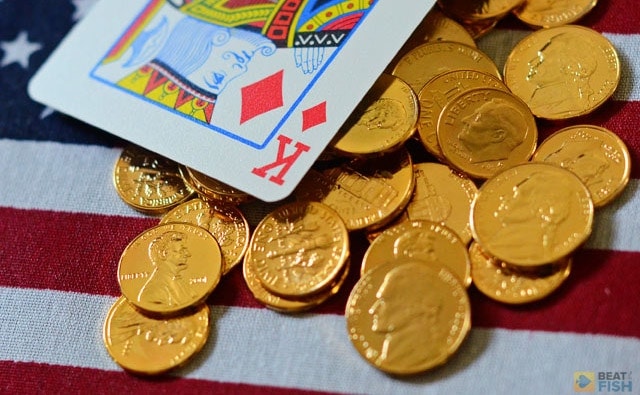
How did the UIGEA become a law?
Someone not acquainted with the passage of UIGEA would expect that it followed the required procedure and was voted into a law willingly and knowingly by Congress and other legislative bodies. Although this appears to be the case on the surface, the truth is somewhat different.
The SAFE Port Act was key
As briefly mentioned, the UIGEA was passed as a part of the SAFE Port Act. This act dealt primarily with the port security (as hinted by the name) and national safety, and there was no mention of the internet gambling in its original draft.
The version of the SAFE Port Act passed by the US Senate on September 14 contained no references whatsoever to any internet gambling regulations.
The vote for the SAFE Port Act was scheduled to take place on September 29, the last day before the adjournment of Congress in lieu of the upcoming 2006 presidential election.
The UIGEA was a last-minute addition
At the last minute, through the Conference Report 109-711, the UIGEA was added to the Act and that final version was sent to the House of Representatives and the Senate for approval.
By accident or not, since there were more pressing matters to attend to, the reading of this report was waived and the Act, together with the UIGEA, was passed by an almost unanimous vote on September 30.
President Bush gave his final signature on October 13 and the Act became a law.
Are you for real?
Although this isn’t the most fitting phrase for an article on a serious legal topic it is certainly the first question that comes to mind. We’re talking about Federal law here, a law that influenced many private and business entities, and it turns out it was passed “accidentally”. It does make one question how serious this topic really is.
Not being an expert on law and regulation myself, I will refer to someone who is, namely professor Nelson Rose, one of the leading authorities on gambling law in the world. Professor Rose has published a lot of articles concerning the UIGEA and its aftermath and he sheds some light on this absurd situation.
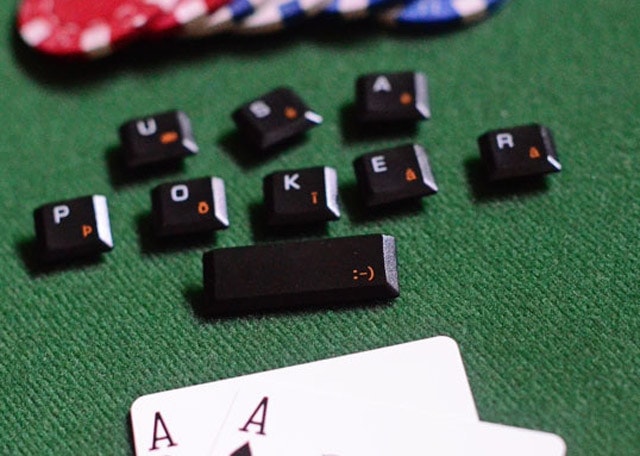
A political ploy by Bill Frist
According to Rose, the UIGEA was created and pushed forward by a failed politician Bill Frist who had hopes that passing the internet gambling law would win him points in the upcoming presidential race.
By attaching the UIGEA to the SAFE Port Act, he pretty much ensured its passage, as the Act as a whole dealt with the national safety and war against the terrorism, so he knew that no one would vote against it, especially given the time constraints.
Although no one but the special interests such as Bill Frist and John Kyl really wanted it, the UIGEA became law.
Every publicly-traded online gaming company withdraws from the US market
The UIGEA scared every publicly traded Internet gambling company into dropping out of the U.S. market. Even privately owned web operators restructured, separating their operations, so American executives have nothing to do with the gaming side of the business. Prof. Rose
However, this was probably an overreaction, or at least it seemed like it at the time.
Here’s the real kicker:
The fact remains that, despite the popular belief and many misguiding reports in the media, the law doesn’t exclusively prohibit online gambling. It only deals with preventing businesses from accepting and processing gambling related transactions.
The difficult decision facing poker providers
Despite that, the passage of UIGEA had serious consequences for online poker providers as they were faced with a tough choice. They could either continue to offer their services to residents of the United States or withdraw from the market, taking a big financial hit.
Those who decided to stay had to deal with numerous obstacles in accepting deposits from their US customers as banks were reluctant to engage in any money transferring activities which could be in any shape or form connected to online gambling activity.
In the end, every publicly-traded online poker site followed the lead of Party Poker and voluntarily withdrew from the US market. Aside from Party, other big names included 888 Poker, Titan Poker, and William Hill.
What carve-outs were given by the UIGEA
Let us briefly look at some of the most important carve-outs of UIGEA in an attempt to discern myths from the truth.
- UIGEA prohibits internet gambling operators from accepting money from US players
- It did not make any previously legal gambling activities illegal as far as players are concerned
- The UIGEA does not make it illegal for players to play online poker
- It does apply to lotteries
- Nothing changed in relation to horse-racing as there is a different law regulating it
- Fantasy sports are mentioned as being excluded, but it’s unclear if that includes the current form of daily fantasy sports as they did not exist at the time the UIGEA was enacted
The UIGEA and Black Friday
Black Friday, the day that will forever be remembered as the worst day in the history of online poker was closely related to the UIGEA. But, it is interesting to note that it only happened in 2011, almost five years after the law was passed.
A majority of people with any interest in USA-based online poker are well aware of the events that took place on that and the days to come, so we will only briefly revisit the history here.
The Federal Government seized internet domains of some of the biggest online poker operators offering their services in the States, including PokerStars, Full Tilt Poker, and Ultimate Bet. Indictments were launched against these companies and their leading men.
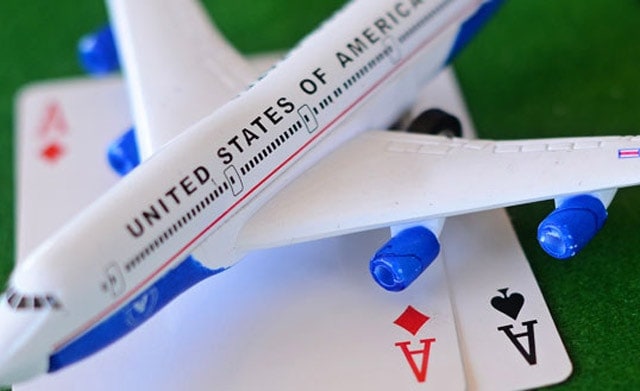
What changed after 5 years of relative stability?
One must wonder, what changed? Why did the government pretty much left everyone alone for nearly half a decade and then, all of a sudden, put a stop to all of it in a move resembling a movie script?
Once again, I’ll refer to Professor Rose.
The timing is suspicious. March saw Nevada regulators approving a partnership between Caesars and 888, and Wynn announcing a joint venture with PokerStars. Now comes the indictments, three-billion-dollar civil suit and seizures of domain names by the feds. Wynn immediately cancelled his plans. Players were panicked. Which was, of course, the goal. Prof. Rose
Prof. Rose explains in detail stipulations of the indictments that were put forth on the Black Friday.
He makes an interesting point that it wasn’t easy for the prosecutors to make their case against the operators because the UIGEA is only an “enforcement” act, which means for it to be used against someone, there has to be a violation of some other state or federal law related to online gambling.
The Feds suspiciously delayed the indictments, likely to combat legalized online gaming development
Another important thing to observe is that the indictments against PokerStars et al. were unsealed after more than a year, with the original date of March 10, 2010.
The Grand Jury has been meeting for at least a year. The criminal indictment against PokerStars, Full Tilt, Absolute and their founders, was unsealed by the U.S. Attorney for New York on April 15, but bore a date-stamp of March 10. So why now? Prof. Rose
The timing of the unsealing coincided with an online poker bill passing the Nevada Assembly Judiciary Committee, which is suspicious at the very least. The Department of Justice has been preparing for this strike for a while, but their problem has always been that online poker was hard to fight.
They picked the moment when they felt there was enough to go on and, more importantly, when they started to feel that the time is running out.
It is important to note that none of the gaming operators were ever charged under the UIGEA. The charges brought against them included allegations of fraud, money laundering, and similar, as there was never a law that the UIGEA could reach out to in order to make the necessary connection.
The important figures charged in the Black Friday indictments largely got away with it
The leaders behind the online poker giants charged in knew that they would never see the inside of a prison cell and they were clearly right.
Even after the whole Full Tilt fiasco (which was, again, largely caused by the UIGEA and inability to correctly process US deposits), which saw many players robbed of tens if not hundreds of thousands, no one went to prison. Some fines were paid, some agreements were signed, and that was that.
The likes of Ray Bitar, Chris ‘Jesus’ Ferguson, and Howard Lederer are out and about, spending the money, playing poker, and in the eyes of the law, they are now just innocent citizens with a few restrictions.
State gaming regulations after the UIGEA
- On December 23, 2011, the DoJ announced their revised stance on the Federal Wire Act
- This change of opinion opened the door for the intrastate online poker regulation
- Experts correctly warned that Federally regulated online poker was still miles away
- Early predictions for the state-regulated poker sites proved true
As we saw in the previous section, the timing of the DoJ crackdown coincided with several states in the US, in particular Nevada and District of Columbia, introducing their own online poker regulations.
Clarification on the Wire Act opens the door to state-licensed online poker
This increased interest by states for an internal regulation followed the DoJ announcement from December 23, 2011, that they revised their stance on the Federal Wire Act, and concluded that it only applies to sports betting.
Although many saw this as an indication that online poker would soon be regulated on the Federal level, the experts warned that the enthusiasm was premature and that online poker would most likely roll out on a state by state basis. It turns out they were right.
However, this shift in the DoJ’s stance opened the doors for all individual states to introduced online poker within their borders.
As Michael Gaughan, the South Point owner, emphasized:
The Department of Justice opinion “changed the game” for everyone, landing the push for Internet poker with individual states. -Gaughan for Review Journal
Some other experts pointed out that online poker compacts between individual states could increase the player pools and, naturally, the revenue produced by the sites. These early predictions were mostly spot on, stating the possible issues like tax structure and tribal complaints, the very situation present in California in 2016.
Was this all by design?
All this does make one wonder if the whole UIGEA situation and the Black Friday were nothing more but a carefully planned move to get rid of the foreign operators and pave the road for the online poker in the States which would be carefully regulated and, of course, taxed by the government.
The UIGEA could be considered modern-day prohibition?
Professor Rose makes an interesting comparison between alcohol prohibition in the States during 1920s and early 30s and the situation in online poker created by the UIGEA. He explains, and this stands to reason, that the Act created an environment where those willing to take on some risk stood to make a serious profit.
The UIGEA forced some operators, like Party Poker, out of the market, leaving a bigger piece of the pie for those sticking to their guns, e. g. PokerStars. However, unlike with the Prohibition on alcohol, facilitating and providing online gambling was only semi-illegal and consequences, if any, were not a big concern.
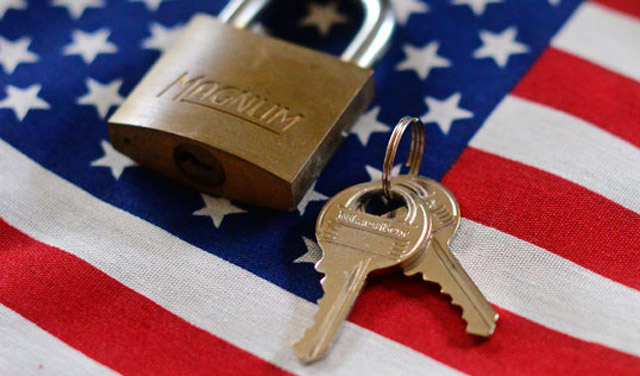
Closing the door on the UIGEA
The Unlawful Internet Gambling and Enforcement Act (UIGEA) was officially made into law on October 13, 2006. It was passed as a part of the SAFE Port Act with most representatives voting on the law not even being aware of its inclusion.
For the next few years, the UIGEA was basically nothing more than dead letters on paper, as operators who did not withdraw from the market continued their day to day operations just like before, with some difficulties in processing deposits and withdrawals.
However, on April 13, 2011, the US DoJ unleashed its full force upon the operators, seizing their domains and unsealing the indictments. Overnight, everything changed.
The reasons why this happened exactly when it happened remain somewhat unclear, but they probably have something to do with the operators, PokerStars in particular, threatening to grab too big piece of the pie without paying their dues to the state.
A shameful piece of legislation that’s stuck because no one’s bothered to fix it
Despite the fact that no one really wanted UIGEA, once it was passed, no one really cared to overturn it either, and so it has stayed, with different organizations like the Poker Players Alliance doing their best to educate congressmen and senators about the law they allowed to slide by them.
Overall, the UIGEA created quite an absurd situation, but once it was enacted, the Department of Justice certainly did all they could to take the full advantage of it.






